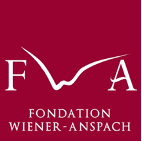TEXTeS, IMAGES, OBJEcTS
Mise à jour le 16 mai 2024 :en raison d’une manifestation étudiante, les 17 et 18 mai, le colloque aura lieu au local UD6.215 (bâtiment U, entrée D, étage 6). Il continue d’avoir lieu au NB2.VIS (Bibliothèque des sciences humaines) le 16 mai.
Updated on 16 May 2024: due to a student demonstration, the conference will take place in the lecture room UD6.215 (building U, gate D, floor 6) on 17 and 18 May. It remains organised at NB2.VIS (bibliothèque des sciences humaines) on 16 May.

PROGRAMME
Clément Dessy, Stefano Evangelista & Patrick McGuinness, org.
Université libre de Bruxelles
16-18.05.2024
Campus du Solbosch
Jeudi 16 mai-Thursday 16 May
Local : NB2.VIS (Bibliothèque des Sciences humaines Simone Veil)
| 10:00-10:30 | Introduction |
| 10:30-12:00 | Session 1: Networks of mediation / Réseaux de médiation |
| Jon Stone (Franklin & Marshall College) | Russian Symbolists and the Imitative Imperative of Modernism |
| Helena Cox (University of York) | Bohemian Symbolism |
| Alexia Kalantzis (Université Paris Cité) | Plurilinguisme et cosmopolitisme : le périodique comme espace stratégique de circulation |
| 12:00-13:30 | Lunch |
| 13:30-15:00 | Session 2: Matérialités signifiantes / Meaningful Materialities |
| Lene Østermark-Johansen (University of Copenhagen) | East meets West: Antoine Bourdelle’s La Danse (1912) |
| Guy Conde-Reis (ULB) & Bruno Montamat (Ministère de l’Éducation nationale, France) | L’hôtel Van Eetvelde de Victor Horta : le Congo belge incarné |
| Angie Dunstan (Queen Mary University of London) | Her Double Life: Sarah Bernhardt and the Global Circulation of Symbolist Sculptural Aesthetics |
| 15:00-15:30 | Break/Pause |
| 15:30-17:00 | Session 3: East/West Encounters / Rencontres Est-Ouest |
| Maïa Varsimashvili-Raphaël | L’aspiration européenne du symbolisme géorgien |
| Teona Farmatu (Université Babeș-Bolyai de Cluj-Napoca) | Le symbolisme dans l’espace du sud-est européen : le cas de Roumanie. L’influence française et la double orientalisation du symbolisme |
| Adriana Sotropa (Université Bordeaux Montaigne) | Le symbolisme roumain : stratégies nationales pour un affichage international |
| 19 :00 | Dîner/Dinner |
Friday 17 May-Vendredi 17 mai
Local : UD6.215
| 10 :00-11 :00 | Session 4: Intermédialité par-delà les frontières / Intermediality across Borders |
| Cyril Barde | Le verre symboliste : un prisme intermédial et international |
| Évanghélia Stead (UVSQ Paris-Saclay) | Aubrey Beardsley takes Europe by Storm and Provokes Art to Intermediality |
| 11:00-11:30 | Pause/Break |
| 11:30-13:00 | Session 5: Intersecting Influences / Influences croisées |
| Laure Kazmierczak (Université de Mons) | Les (re)traductions en russe et en allemand de La Princesse Maleine, premier drame symboliste de Maurice Maeterlinck |
| Emmanuel Boldrini (Université Paris Est Créteil) | Redon, Klinger, Laforgue : itinéraires d’influences mutuelles et réciproques, entre textes et images, entre France et Allemagne |
| Ana Parejo Vadillo (Birkbeck, University of London) | The Author as a Symbol: Michael Field’s Dialoguic Imagination |
| 13:00-14:00 | Lunch |
| 14:00-15:30 | Session 6: Identités poétiques : cosmopolitisme et nationalisme / Poetic Identities: Cosmopolitanism and Nationalism |
| Inna Volkovynska et Oleksandr Volkovynskyi (Université Grenoble Alpes) | Réinterprétations du jardin dans la poésie symboliste ukrainienne |
| Matthew Potolsky (University of Utah) | Sarojini Naidu: Symbolism and Nationalism |
| Dimitris Papanikolaou (St. Cross College, Oxford) | Worlding C.P.Cavafy’s symbolism |
| 15:30-18:00 | Cultural visit/visite Culturelle – Bibliothèque-Musée Wittockiana (for speakers only) |
| 19:00 | Cocktail at Maison Hannon (for speakers only) |
Samedi 18 mai-Saturday 18 May
Local : UD6.215
| 9 :00-10 :30 | Session 7: Translating the Visual / Traduire le visuel |
| Charlotte Ashby (Birkbeck, University of London) | Entangled Histories: Imagining India in Britain 1890-1920 |
| Elodie Le Beller (Université Rennes 2) | La rénovation de la tempera : un caractère technique transnational du symbolisme pictural |
| Eduardo De Maio (University of York) | The magazine La Triennale : International symbolism and the debate on the social value of beauty in Italy |
| 10:30-11:00 | Break/Pause |
| 11:00-12:30 | Session 8: Écrire les mobilités / Writing Mobilities |
| Matthew Creasy (University of Glasgow) | Postal Routes: Mallarmé’s Occasional Poetry and the Dissemination of Symbolism |
| Alex Murray (Queen’s University Belfast) | ‘The wanderer of the ways of all the worlds’: Christopher Brennan and the Quest for Australian Symbolism |
| Adeline Heck (Université libre de Bruxelles) | A Cosmopolitan Novel? Unpicking the Many Contradictions of Teodor de Wyzewa’s Valbert (1893) |
| 12:30-14:00 | Conclusions & lunch |
| 14:00-17:00 | Cultural visit/Après-midi : visite culturelle (for speakers only) |
Avec le généreux soutien de la Fondation Wiener-Anspach.




